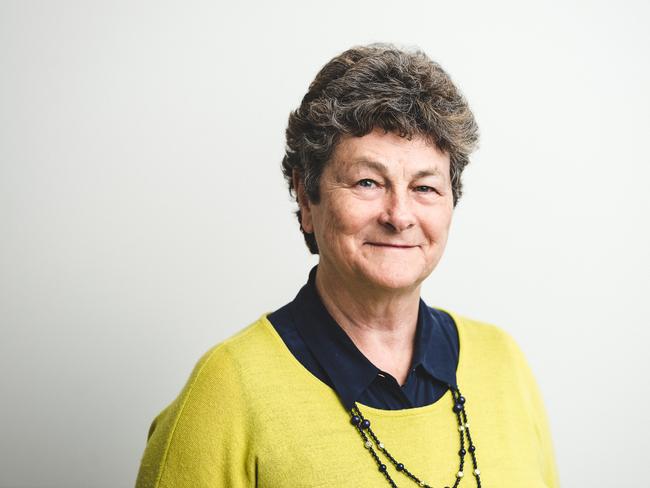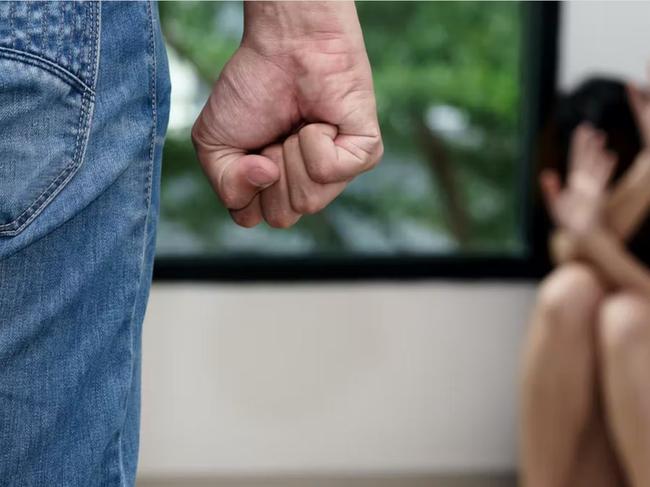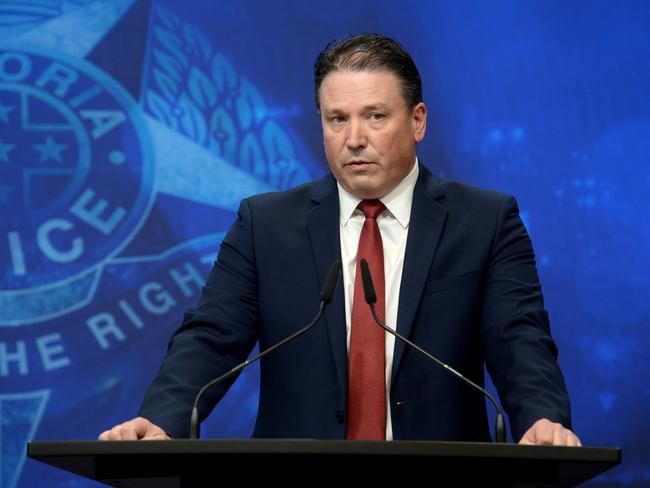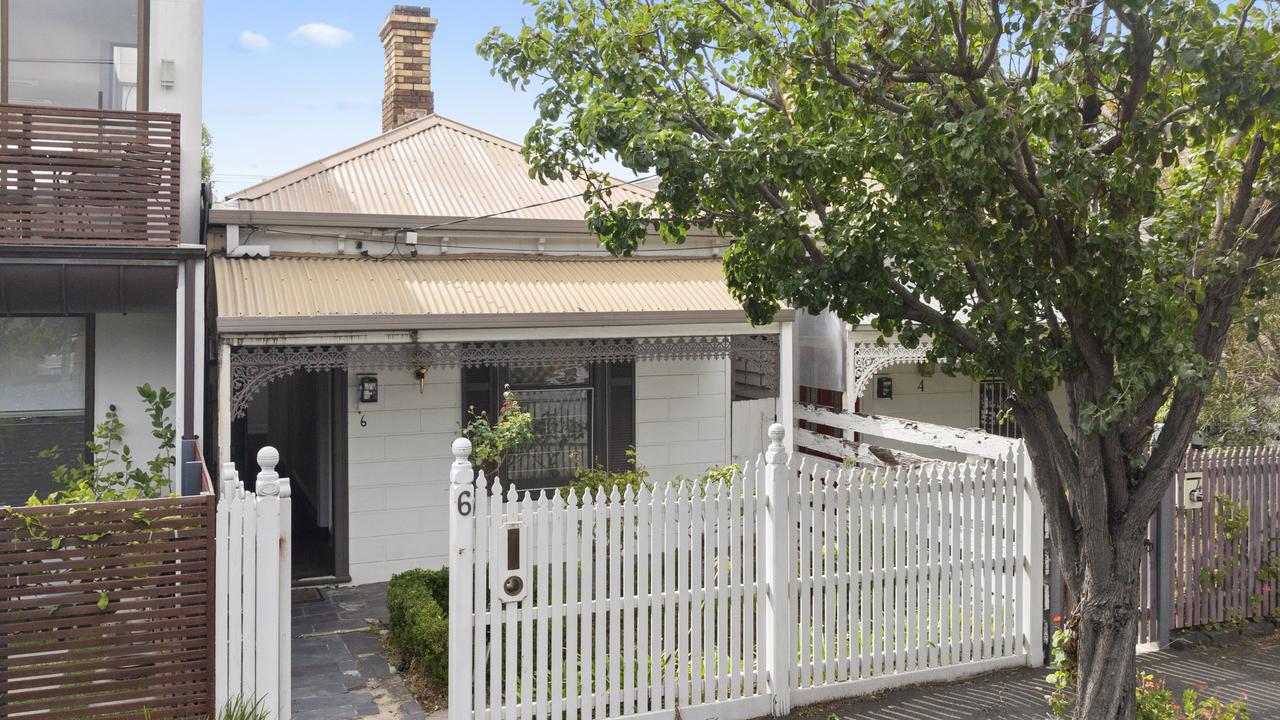Street Safe Victoria: How to address behaviours causing women to feel unsafe
Better infrastructure and maintenance will help improve thousands of unsafe places in Victoria but attitudes must change to address a bigger problem, writes Hayley Elg.

Melbourne City
Don't miss out on the headlines from Melbourne City. Followed categories will be added to My News.
While better infrastructure and maintenance are short-term solutions to making places safer in Victoria advocates say they are band-aid solutions for a much bigger problem.
Mary Crooks, executive officer at the Victorian Women’s Trust, said one of the reasons Australia was “not making inroads” to address the issue of violence against women and gender-diverse people, despite national plans, was because the deeper questions were not being adequately addressed.
“One of the critical issues in all of this is how the lived experience of women experiencing a lack of safety — not just in their relationships but also in public spaces — is that their lived experience is confined to them,” she said.
“It’s often difficult, or impossible, for men to understand that experience because it doesn’t happen to them in the same way… So the deep questions of male culture, socialisation and normalisation don’t get addressed and then there is no change.
“That’s part of the way in which this safety issue limps along and isn’t picked up in the priorities and programs unless there is a really concerted effort.”
She said most men would never have felt compelled to look in the back of their cars before they drive off, to clutch their keys when they get off a train, have a trusted loved one pick them up from the station or avoid renting an apartment on the ground floor for fear of being attacked.
“But irrespective of their backgrounds, women are constantly making these assessments about risk.”

Whether from first-hand experience, through stories shared by friends or what they read in the media, she said every woman had learned about potential risks and that it had informed their view of the world.
“Your lived experience and the lived experience of other women is a crucial part of your lens and has you making particular assessments and decisions everyday,” she said.
While she said efforts to improve infrastructure and roll out more lighting were good short-term solutions, we needed to “dig down” and get to the heart of the real reasons for which women’s safety was an issue.
“While lighting is going to help, it doesn’t actually get to the bottom of the thing — which is why do we even need to be improving the lighting?
“What is the behaviour that‘s causing us to need to [do it]?
“Because your solutions are only as good as your analysis of the problem.”
While conceding it was a confronting topic for discussion, she said it was “almost overwhelmingly and statistically men making women unsafe” in public spaces and the question that needed to be asked was why.
“How can it be, in our Australian society, that there are millions of men who are socialised and who would never dream of hurting the ones they love — their partners and children — and never do.
“But that the same society produces men who do? And a lot of them.
“What beliefs, values and behaviours are nourishing this kind of behaviour in our society?”
According to the federal government’s last budget, violence against women is estimated to cost Australia more than $26 billion each year.
Ms Crooks said creating a better understanding of behaviours, like coercive control, and the links to harassment and physical violence, were critical to comprehending and improving women’s safety in their homes and in public spaces.
“Understanding the dynamic of coercive control is critical to understanding why men kill,” she explained, noting the horrific murders of Hannah Clarke and her three children at the hands of her estranged husband and the children's father.
“When men kill women it‘s because the women are either threatening to leave or have left them. It’s the ultimate attempt to reassert their power over that woman.”

From this understanding she said action could be taken.
“We are talking about generations and generations of conditioned responses but it doesn’t need to be this way.”
Ms Crooks said “good men” needed to “step up” and be positive influences.
“We need men to step up and be able to understand these deeper issues,” she said.
“The reality is that good men are in such a position to influence their male peers. They’ve got to step up.
“The biggest part of prevention is not about running campaigns or wagging fingers, it is about encouraging men to see the issue, to plumb the depths, and then to start being agents within male worlds for this kind of change.”
But she also said more investment was needed for men’s behavioural change programs.
While millions were allocated for refuges and support services for people fleeing family violence in the last federal and state budgets, smaller amounts were allocated by both state and federal governments to the programs.
Ms Crooks said these programs, which “might have the potential to actually address men’s violence and change their behaviours”, needed to be “massively invested in because they actually work”.
BETTER BYSTANDERS
It comes as Plan International Australia prepares to roll out training to educate people how to be more helpful bystanders.
Their work around the world has revealed there are “three clear steps to addressing street harassment”.
The first is that authorities need to encourage girls and young women to report instances of harassment, that their responses need to be improved and more investment needs to be made into public awareness campaigns and behavioural change.
The organisation’s research during the last five years has found that bystanders don’t usually intervene when witnessing street harassment and that this forces females to adjust their behaviour to protect themselves.
The Stand Up Against Street Harassment campaign, being conducted in partnership with L’Oreal Paris, will see youth leaders deliver sessions to empower people to combat sexual harassment in public places.
Plan International Australia’s chief executive officer, Susanne Legena, said Australia was one of the most dangerous places in the Asia-Pacific region for street harassment, with a recently released global gender index finding the nation is in the bottom 50 per cent when it comes to women’s perceptions of safety.
“From leering, flashing, catcalls and sexist slurs to groping, stalking, assault and rape – the reality is that the overwhelming majority of women and gender diverse people will face gender-based street harassment in their lives. We must ensure that all girls and young women are free, safe and equal,” she said.
‘UNACCEPTABLE’ BEHAVIOUR
Acting Commander Tim Day, of Victoria Police’s Priority and Safer Communities Division, said the role of police was to support community safety and reduce crime.
“Everyone has a right to freely live their life without fear of being attacked, intimidated or harassed.”
Noting that women were statistically more likely to experience violence and abuse at home and that police had strategies to support victim-survivors, he said violence and harassment anywhere was “unacceptable”.
Acknowledging that a police presence and proactive patrols could enhance a sense of safety, including for more vulnerable members of the community, he said police were on duty “at all times of the day and night across the state”, actively patrolling public areas such as shopping strips, gyms and public transport hubs.
“We do this to provide a visible presence to detect and deter crime, and respond swiftly to any incidents that occur,” he said.
As part of evidence-based approaches to gather intelligence to inform how and where police are tasked to prevent, deter and detect crime, the force this year launched the Neighbourhood Policing initiative.

It was developed as a place-based, problem-oriented approach to improving community safety and engagement from a local level.
It sees police increase their focus on engagement to learn about the issues that matter most to communities so they can then work to address them.
“Community engagement is central to how Victoria Police serves the community,” Acting Commander Day said.
“Police will continue to have planned and purposeful interactions with our diverse communities to better understand how we can best support them.”
As part of the initiative police are encouraging Victorians to complete an anonymous survey to help target services.
It asks some demographic questions to understand the needs of priority communities–Aboriginal and Torres Strait Islander people, LGBTQIA+, multicultural or multi faith, people with disabilities, people experiencing mental health issues, seniors and young people — and how responses could be tailored to these groups.
The survey opened on April 1 and closed on May 31.
INVESTING IN SAFETY
A state government spokesperson said Victoria was “leading the nation” with conversations about women’s safety.
They said the government had implemented every recommendation from the world-first Royal Commision into family violence with work “well underway” on the remaining 23.
“Victoria is leading the nation with its work to end family violence, with more than $3.7 billion invested to prevent and respond to gendered violence since the Royal Commission – more than every other state and territory combined, and more than the Commonwealth.
“Every instance of family violence is entirely preventable – that’s why we established in legislation Australia’s only dedicated primary prevention agency, Respect Victoria, and have invested over $177 million in primary prevention initiatives across our state.”
They said councils were able to apply for infrastructure funding between 2015 and 2020 to install and upgrade design initiatives such as lighting, CCTV and pathways.
“We know lighting and infrastructure play a significant role in how we experience public spaces – that’s why we have invested almost $31 million across 92 projects to promote positive use of public spaces, improve lighting and deter crime,” they said.

For example, the City of Melbourne obtained a $193,000 grant for ‘Project Night Justice’ to improve safety for women and gender-diverse people visiting the CBD at night, while Darebin City Council secured a $200,000 grant for the ‘Women’s Safety in Public Places’ project which saw lighting upgraded at sites identified through the innovative ‘Gender Equality Map’.
The Victorian curriculum requires schools to teach students about relationships, sexuality and safety to promote the development of healthy attitudes to relationships.
“We’re ensuring our schools are teaching positive, inclusive consent education that delivers better outcomes to young people — and that‘s why age-appropriate consent education is mandatory in all Victorian government schools from Prep to Year 12.”
The spokesperson added Victoria was also leading the nation in advocating for mandatory consent education to be included in the national curriculum, which had been adopted for use from next year.
All state government schools and more than 300 Catholic and independent schools have signed up to the Respectful Relationships initiative, following an investment of $82 million to deliver training, support and funding to schools to implement it.
A spokesperson for the federal department of Families and Social Services said it provided funding to programs such as No to Violence through the Men’s Referral Service and the Changing for Good program through MensLine Australia.
They added the government had a number of initiatives underway to support a deeper understanding of consent and respect, including some to support men and boys, including the Stop it at the Start campaign.
Also in this series:
- Every unsafe place in Victoria
- 13-year-old behind brazen attacks on women
- What makes women feel unsafe
If this story has raised any issues for you call Lifeline on 13 11 14, 1800 RESPECT or the Sexual Assault Crisis Line on 1800 806 292.


